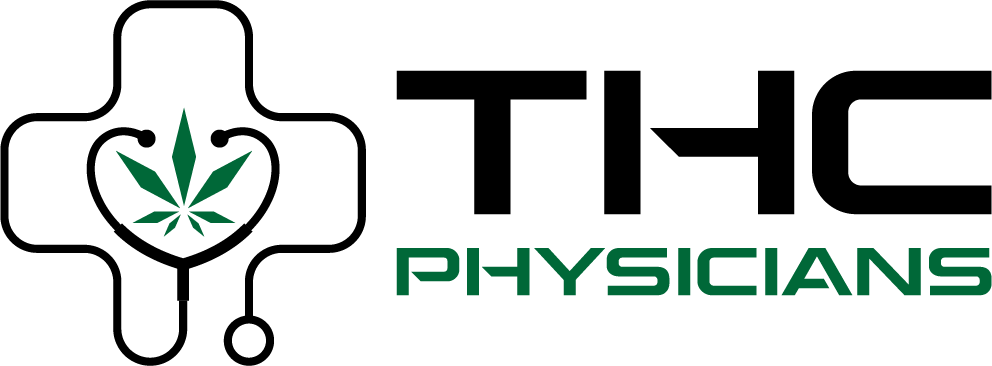Introduction
Living with Obsessive-Compulsive Disorder (OCD) can be challenging, affecting millions worldwide. Finding effective treatments is crucial for enhancing quality of life. In recent years, medical cannabis has garnered attention for its potential in managing OCD symptoms. But what does the research say? How does it work, and is it a viable option? Let's delve into the world of medical cannabis for OCD.
Table of Contents
| Sr# | Headings |
|---|---|
| 1 | Understanding OCD and its Impact |
| 2 | What is Medical Cannabis? |
| 3 | The Endocannabinoid System |
| 4 | How Medical Cannabis May Help OCD |
| 5 | Types of Medical Cannabis Products |
| 6 | Dosage and Administration |
| 7 | Potential Risks and Side Effects |
| 8 | Legal Considerations |
| 9 | Real-Life Experiences |
| 10 | Conclusion |
| 11 | FAQs about Medical Cannabis for OCD |
Understanding OCD and its Impact
OCD is a mental health disorder characterized by intrusive thoughts (obsessions) and repetitive behaviors (compulsions). It can significantly impair daily functioning and diminish quality of life. People with OCD often experience intense anxiety and stress due to their uncontrollable thoughts and actions.
What is Medical Cannabis?
Medical cannabis refers to the use of cannabis and its cannabinoids, such as THC and CBD, for medicinal purposes. Unlike recreational cannabis, medical cannabis is prescribed by healthcare professionals to alleviate symptoms associated with various medical conditions, including chronic pain, epilepsy, and anxiety disorders like OCD.
The Endocannabinoid System
To understand how medical cannabis works, it's essential to grasp the endocannabinoid system (ECS). The ECS is a complex network of receptors found throughout the body, including the brain, immune system, and nervous system. It plays a crucial role in regulating various physiological processes, such as mood, appetite, pain sensation, and memory.
How Medical Cannabis May Help OCD
Research suggests that medical cannabis may offer therapeutic benefits for individuals with OCD. Cannabinoids like CBD have been shown to interact with serotonin receptors in the brain, which are implicated in regulating mood and anxiety levels. By modulating serotonin levels, medical cannabis may help alleviate the symptoms of OCD, including intrusive thoughts and compulsive behaviors.
Types of Medical Cannabis Products
Medical cannabis comes in various forms, including oils, tinctures, capsules, edibles, and topical creams. Each product has its unique characteristics, onset time, and duration of effects. Some individuals may prefer certain formulations over others based on their preferences and medical needs.
Dosage and Administration
Determining the right dosage and administration method is crucial when using medical cannabis for OCD. It's essential to start with a low dose and gradually increase it until the desired effects are achieved. Consulting with a healthcare professional experienced in medical cannabis is recommended to tailor the treatment plan to individual needs.
Potential Risks and Side Effects
While medical cannabis may offer therapeutic benefits, it's not without risks. Side effects such as dizziness, dry mouth, fatigue, and changes in appetite may occur, especially with higher doses. Additionally, long-term use of cannabis may have adverse effects on cognitive function and mental health, highlighting the importance of cautious use and monitoring.
Legal Considerations
The legal status of medical cannabis varies from country to country and state to state. In some regions, medical cannabis is legal with a prescription, while in others, it remains illegal or highly restricted. It's essential to familiarize oneself with local laws and regulations regarding the use of medical cannabis to avoid legal complications.
Real-Life Experiences
Many individuals with OCD have reported positive experiences with medical cannabis, citing reductions in anxiety, intrusive thoughts, and compulsive behaviors. However, it's essential to approach such anecdotes with caution, as individual responses to medical cannabis can vary widely. What works for one person may not necessarily work for another.
Conclusion
In conclusion, medical cannabis shows promise as a potential treatment option for OCD. While research on its efficacy is still evolving, preliminary studies suggest that cannabinoids like CBD may help alleviate symptoms by modulating serotonin levels in the brain. However, it's essential to weigh the potential benefits against the risks and consult with a healthcare professional before incorporating medical cannabis into one's treatment regimen.
FAQs about Medical Cannabis for OCD
1. Can medical cannabis cure OCD?
No, medical cannabis cannot cure OCD. However, it may help alleviate symptoms and improve quality of life for some individuals.
2. Is medical cannabis legal for OCD treatment?
The legal status of medical cannabis varies by location. In some areas, it is legal with a prescription, while in others, it remains illegal or highly restricted.
3. What are the potential side effects of medical cannabis?
Common side effects of medical cannabis include dizziness, dry mouth, fatigue, and changes in appetite. Long-term use may also have adverse effects on cognitive function and mental health.
4. How do I determine the right dosage of medical cannabis for OCD?
Determining the right dosage requires careful experimentation and consultation with a healthcare professional experienced in medical cannabis. It's essential to start with a low dose and gradually titrate up to the desired effect.
5. Can I use medical cannabis alongside other OCD medications?
It's essential to consult with a healthcare professional before combining medical cannabis with other OCD medications, as interactions may occur. They can provide personalized guidance based on individual health needs and medication profiles.

